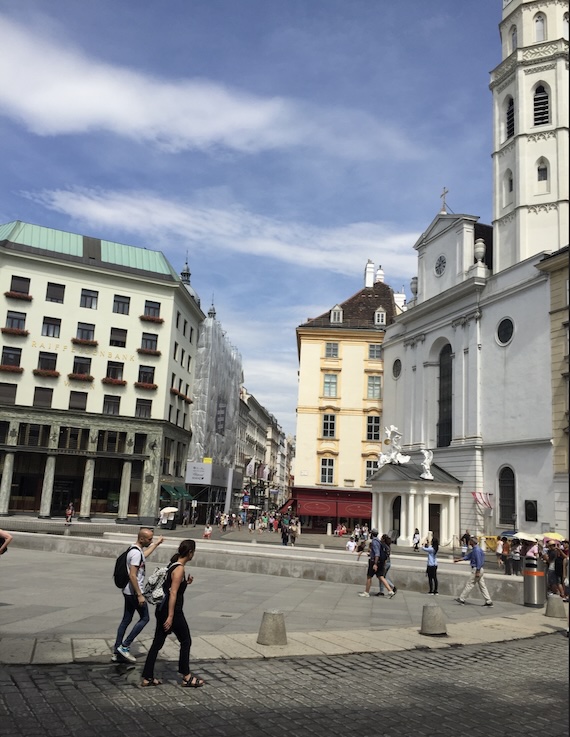Montréal (Special to Informed Comment; Feature) – In March 1896, William Hechler, the Anglican chaplain at the British Embassy in Vienna, came across a book titled Der Judenstaat (The State for Jews). Hechler belonged to a centuries-old Protestant movement that aimed at gathering Jews in Palestine and converting them to Christianity. The book’s author, journalist Theodor Herzl, also lived in the Austrian capital. Hechler sought out Herzl, and their encounter had momentous consequences—ones that still generate headlines today. Hechler helped Herzl promote the Zionist idea by introducing him to powerful politicians across Europe. The following year, Hechler was hailed as “the first Christian Zionist” at the Zionist Congress.
The First Zionist Congress was originally planned for Munich, then home to a prominent Jewish community. But several Jewish organizations in Germany petitioned the government to ban the event. The national association of rabbis condemned the Zionists, declaring: “The efforts of the so-called Zionists to establish a Jewish national state in the Land of Israel… [are in conflict with] the messianic goals of Judaism, as expressed in the Scriptures and other religious sources.”
Indeed, Jewish opposition to Zionism has existed since its inception. In June 2025, Vienna hosted a Jewish anti-Zionist congress with over a thousand participants—a clear response to global outrage against Israel. While the Zionist state has long faced accusations of brutally oppressing Palestinians, the events of the past year and a half have surpassed even the harshest criticisms. Many Jews have distanced themselves from Israel; some have become its most vocal detractors.
This congress was the first of its kind in Europe—fitting, given that Zionism was not only born in Europe but also conceived as a European colonial project for European Jews. The Nazi genocide drastically reduced the pool of potential settlers, forcing the new Israeli state to recruit Jews from Asia and Africa, where Zionist ideas had barely taken root. Despite their disdain for Arab culture, Israeli leaders needed to populate the country after expelling hundreds of thousands of Arab Palestinians in 1947–49. The uprooting of non-European Jews was performed by suborning Arab rulers and staging violent provocations by Zionist agents. It is now well-documented, with works by Iraqi Jewish scholars Ella Shohat and Avi Shlaim shedding light on the plight of Arab Jews in Israel.
The three-day Anti-Zionist Congress featured historians, political scientists, and activists. The genocide in Gaza was a central theme, but discussions also covered the history of Zionism in Palestine, the political and religious roots of Jewish opposition to Zionism, and the critical support Israel receives from ruling classes worldwide. Speakers examined not only the Israel lobby’s influence over U.S. and Western policies but also the economic and military cooperation between Arab rulers and Israel. Notably, Jordan and Saudi Arabia joined the U.S., Britain, and France in intercepting Iranian missiles aimed at Israel. Turkey’s stance also drew scrutiny: while its leaders vehemently denounce Israel, the country continues trading with the Zionist state, notably facilitating the transit of Azerbaijani oil through its territory.
Several speakers analyzed Israel’s impunity in a broader global context. The genocide in Gaza and escalating anti-Palestinian violence in the West Bank are largely carried out with Western weapons, while Israel’s economy is sustained by generous funding from North America and parts of Europe. Many Western leaders admire Israel’s self-definition as an ethno-state where discrimination is legal—even enshrined in law. They also employ Israeli surveillance technology to track and deport “undesirables” from their own countries.
Finally, speakers highlighted the disregard for public opinion in nations that support and arm Israel—a pattern seen in other policies, such as Europe’s recent militarization push despite public concerns over cuts to welfare programs. Israeli surveillance tools, they noted, are increasingly used by governments to suppress dissent and control populations, making the Zionist state a threat far beyond its region.

“Vienna, 8/2017,” © Juan Cole
The congress’s final declaration reflected this broad perspective: “Jews of conscience must unite in opposing Zionism, standing in solidarity with the global movement for Palestinian liberation. We commit to expanding our movement beyond its European roots, amplifying anti-Zionist voices worldwide including from the Global South.” Given Israel and its allies’ relentless efforts to conflate criticism of Zionism with antisemitism, the congress affirmed: “Israel and Zionism act illegally and immorally while claiming to represent all Jews—endangering Jewish communities everywhere. The false assertion that Jews inherently support Zionism and its abhorrent state is the real antisemitism.”
The organizers of the congress were concerned about possible disruptions and outright ban by the authorities since Austria is one of the staunchest supporters of Israel. This is why the venue was announced at the last moment. In spite of occasional technical problems, the congress was a success and may help coalesce the disparate anti-Zionist Jewish voices gaining strength around the world.


 © 2026 All Rights Reserved
© 2026 All Rights Reserved